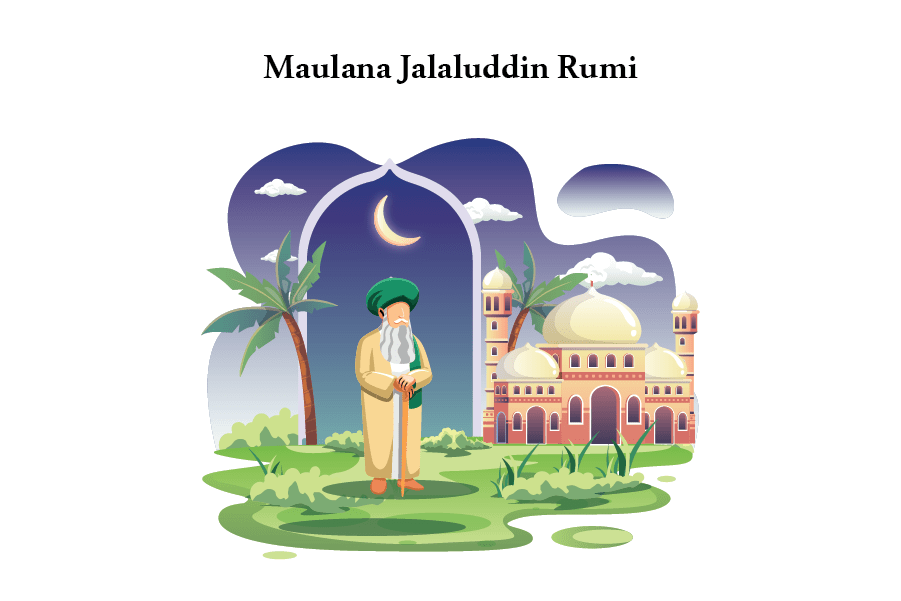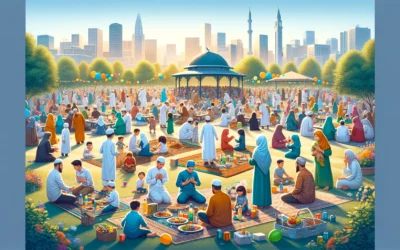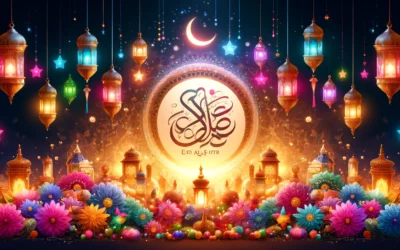Maulana Jalaluddin Rumi
Rumi was born in the early thirteenth century in what is now Afghanistan. He later settled in Konya, in present-day Turkey, with his family. His father was a preacher and religious scholar, and he introduced Rumi to Sufism. Rumi continued his theological education in Syria, studying the more traditional legal codes of Sunni Islam, and later returned to Konya as a seminary teacher. He met an elder traveler, Shams-i-Tabriz, who became his mentor there. The nature of the intimate friendship between the two is much debated, but Shams, everyone agrees, had a lasting influence on Rumi’s religious practice and his poetry. In a new biography of Rumi, “Rumi’s Secret,” Brad Gooch describes how Shams pushed Rumi to question his scriptural education, debating Koranic passages with him and emphasizing the idea of devotion as finding oneness with God. Rumi would come to blend the intuitive love for God he found in Sufism with the legal codes of Sunni Islam and the mystical thought he learned from Shams.
“Be empty of worrying. Think of who created thought! Why do you stay in prison? When the door is so wide open?” ―Rumi, The Essential Rumi.
Maulana Jalaluddin Rumi was the most famous Persian poet, a Sufi mystic, and an Islamic dervish. He is amongst the most significant spiritual masters and poetical intellects. Rumi was born on September 30, 1207, in Afghanistan Balkh. He was a follower of one of his father’s students Sayyed Burhan ud-Din Muhaqqiq Termazi.
Under the guidance of Sayyed Termazi, he learned Sufism. Hence, he learned much about spirituality and the mysteries of the spirit world. He preached in the mosques of Konya. By the time Rumi reached 24, he had proven himself a well-informed religious science teacher.
“When you go through a challenging period, When everything seems to oppose you, And When you feel you cannot even bear one more minute NEVER GIVE UP! Because it is the time and place that the course will divert!”
―Rumi, The Essential Rumi
Personality of Maulana Jalaluddin Rumi:
Maulana Jalaluddin Rumi was not, and is not, the only hero of love. However, he was and is one of the great representatives of the school of love in the Islamic tradition based on the life and practices of the Prophet, which we call Sufism.
This tradition, including names like Hasan Basri, Ibrahim Ethem, and Bishr-i Khafi in the Arabian Peninsula in the second century of Islam, multiplied with Ahmed Yasawi and Yunus Emre in Central Asia. And Anatolia during the rule of both the Seljuks and the Ottomans.
Recently, this understanding of Islam has been represented by Sufis and scholars like Mevlana Halid-i Bagdadi, Bediüzzaman Said Nursi, and Muhammed Lutfi Efendi, and recently Fethullah Gülen.
Maulana Jalaluddin Rumi was one of the essential rings in that golden chain of Islamic tradition and was deeply affected by and benefited from the wealth and experiences of those Sufis and scholars preceding him and influencing those to come.
“Your hand opens and closes, opens and closes. If it were always a fist or always stretched open, you would face paralysis. Instead, your deepest presence is in every small contracting and expanding, the two as beautifully balanced and coordinated as birds’ wings.”
―Rumi, The Essential Rumi
Popular Works:
- Diwan-e Shams-e Tabrizi: Diwan-e Shams-e Tabrizi (or Diwan-e-Kabir) is one of the masterpieces of Maulana Jalaluddin Rumi. It is a collection of ghazals named in honor of dervish Shamsuddin, Rumi’s great friend and inspiration.
- Mathnawi: Mathnawi is a compilation of six volumes of poetry written in a didactic style. The poems inform, instruct as well as entertain the reader. Maulana Jalaluddin Rumi started the work of Mathnawi at the suggestion of his then-companion, Husam al-Din Chalabi.
Maulana Jalaluddin Rumi died on 17th December 1273 AD, in Konya. He is resting beside his father in Konya.











